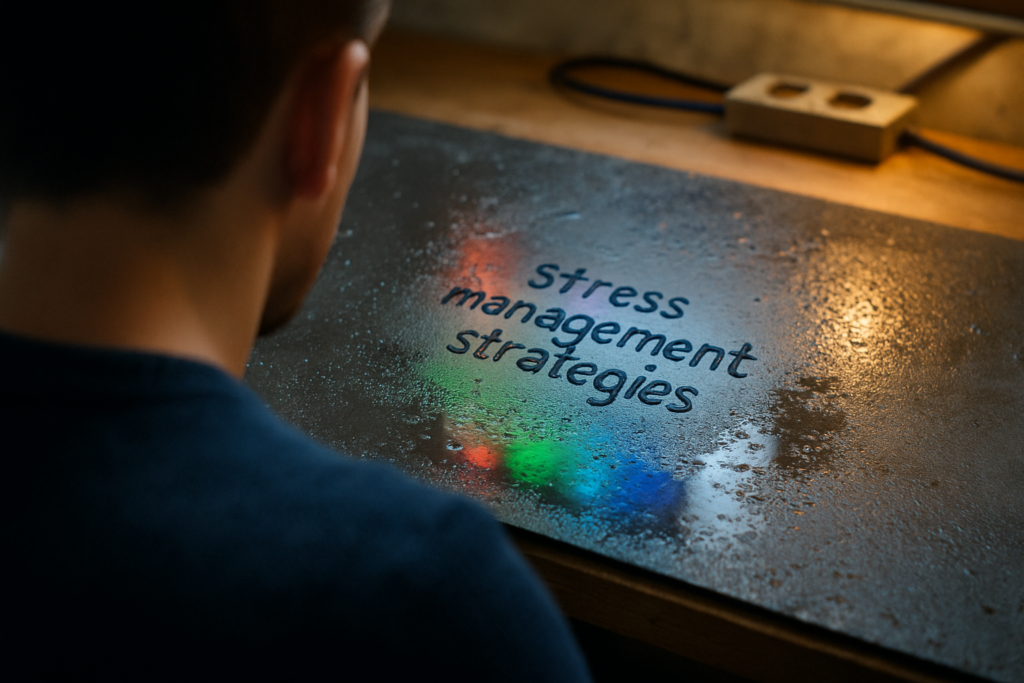Understanding Self-Care
Understanding self-care involves recognizing the importance of both mental and physical wellness. By integrating small but significant actions into daily routines, one can achieve substantial improvements in overall well-being.
Mental Wellness Through Self-Care
Fostering mental wellness starts with proactive self-care practices. Mindful meditation can stabilize mood and reduce stress. Spending 10 minutes daily on focused breathing can promote relaxation.
Engaging in hobbies, such as reading or painting, provides mental stimulation and enjoyment. Financial planning can reduce anxiety by organizing finances and setting realistic goals.
Physical Wellness Through Self-Care
- Maintaining physical wellness necessitates deliberate actions.
- Regular exercise, such as jogging or yoga, boosts energy levels and improves physical health.
- Consuming balanced meals, with proper portions of proteins, vegetables, and grains, ensures nutritional needs are met.
- Prioritizing sleep, aiming for 7-9 hours per night, promotes recovery and overall well-being.
- Devoting time to stretching routines alleviates muscle tension and enhances flexibility.
By prioritizing these self-care practices, one can achieve a harmonious balance between mental and physical health.
Essential Self-Care Tips
Paying attention to self-care is vital for maintaining mental and physical wellness. Below are key tips to integrate into a daily routine.
Daily Routines for Balance
Having a structured daily routine promotes balance. Start the day with a brief morning exercise, such as stretching or a short walk. Follow with a nourishing breakfast.
At work, take regular breaks every 90 minutes to rest your mind. End your day with a calming activity like reading or gentle yoga to ensure a good night’s sleep. Consistency in daily habits supports a steady mental state and keeps stress levels low.
Nutrition and Physical Health
Proper nutrition is foundational for physical wellness. Include a variety of fruits, vegetables, lean proteins, and whole grains in your diet. Stay hydrated by drinking at least 64 ounces of water daily.
Avoid processed foods high in sugar and trans fats as they can affect both physical and mental health. Regular physical activity, such as 30 minutes of moderate exercise five times a week, improves overall well-being.
Mental Exercises and Mindfulness
Practicing mental exercises enhances cognitive function and emotional health. Engage in activities like puzzles, reading, or brain training apps to keep your mind sharp.
Incorporate mindfulness techniques, such as deep-breathing exercises or guided meditation, to reduce anxiety and improve focus. Spend time each day reflecting on positive experiences to foster a mindset of gratitude and purpose.
These essential self-care tips, when practiced daily, contribute to a balanced and healthy lifestyle.
Overcoming Challenges in Self-Care

Many face obstacles when trying to adhere to self-care routines. Recognizing these challenges helps in effectively addressing them.
Addressing Common Barriers
Time constraints limit many from pursuing self-care activities. Prioritizing tasks and setting a strict schedule maximizes efficiency.
For example, blocking out 15 minutes for meditation or a quick workout ensures these activities don’t get skipped.
Financial limitations can restrict access to certain wellness activities. Opting for low-cost or free alternatives, like online workout videos and community events, can maintain a self-care regimen without straining a budget.
Lack of motivation frequently hampers self-care. Setting achievable goals and rewarding oneself after completing tasks helps maintain motivation.
Additionally, seeking support from friends or family can create an encouraging environment.
Sustainable Self-Care Practices
Consistency is paramount in self-care. Incorporating small, manageable activities prevents burnout and promotes long-term adherence. For instance, starting with a 10-minute morning walk gradually builds into a daily habit.
Variety in self-care routines keeps practices interesting and engaging. Alternating between different activities, like:
- yoga
- reading
- cooking healthy meals
prevents monotony and sustains enthusiasm.
Utilizing available resources ensures continued self-care. Mobile apps for mental health, fitness tracking, or meal planning offer on-the-go support and structure. Regularly updating and revisiting these tools enhances their effectiveness and keeps self-care practices modern and relevant.
Incorporating Self-Care into Everyday Life
Integrating self-care practices into daily routines ensures better mental and physical wellness. By making small yet meaningful changes, I can foster a healthier and more balanced life.
Self-Care at Work
Incorporating self-care at work boosts productivity and reduces stress. Scheduling short breaks throughout the day helps maintain focus and prevent burnout. I’ve found that stepping away for five minutes every hour to stretch or walk around improves my concentration.
Staying organized also supports mental clarity. I use tools like task managers and calendars to keep track of my responsibilities. Setting achievable goals not only streamlines my workflow but also gives me a sense of accomplishment.
Healthy snacking is another effective strategy. I stock my desk with nuts, fruits, and water instead of relying on sugary snacks. These choices sustain my energy levels and keep me hydrated.
Self-Care at Home
At home, self-care routines create a peaceful environment. Setting boundaries between work and personal time prevents overworking. I designate a specific area and time for work, ensuring relaxation and downtime in the evening.
Regular exercise is crucial. I engage in activities like yoga or a 20-minute jog to release endorphins and maintain physical health. Having a consistent workout routine helps me stay disciplined and energized.
Adequate sleep is non-negotiable. Creating a bedtime routine, such as reading or meditating, signals to my body it’s time to unwind. Sleeping 7-9 hours nightly restores my mind and body, preparing me for the next day’s challenges.
Incorporating these practices daily nurtures my overall well-being, promoting a balanced and fulfilling lifestyle.


 Nicoleeny Castrolos, the founder of Body Care And Matter, is a passionate advocate for health and wellness. With a deep commitment to improving the lives of individuals, Nicoleeny has built a platform dedicated to delivering the latest insights on men’s and women’s health, nutrition, and mental wellness.
Nicoleeny Castrolos, the founder of Body Care And Matter, is a passionate advocate for health and wellness. With a deep commitment to improving the lives of individuals, Nicoleeny has built a platform dedicated to delivering the latest insights on men’s and women’s health, nutrition, and mental wellness.

